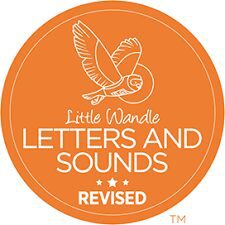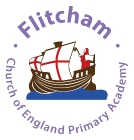English
Our English provision follows the 2014 National Curriculum and is taught through daily English lessons. All English lessons have clear learning objectives displayed so that the children understand the expectations of the task. Success criteria are consistently referred to during teacher modelling and used effectively for self and peer assessment at the end of a task. The success criteria are clearly referred to when feedback from the teacher is given, either verbally or in writing.
Effective differentiation is in place so that all children have the opportunity to meet every learning intention through having vocabulary word banks, writing frames and sentence starters, mixed ability groupings and adult support. Teachers also ensure that children are taught and know how to demonstrate greater depth in their outcomes of work and this is reinforced through the success criteria which children refer to throughout their work and assess against on completion.
Children across the federation are given extended writing opportunities across the curriculum, where they can plan and write a longer text in a foundation subject.
Displays are used throughout the school to promote reading, writing and discussion. We recognise the important role display has in the teaching and learning of English and English working walls focus on the objectives being currently taught and are used by teachers as teaching tools. Each class displays work which celebrates a variety of children’s achievements to a high standard of presentation. Books are displayed attractively and invitingly encouraging a love of reading a variety of genres for children to choose from. Both schools have library areas and contain a selection of fiction and non-fiction texts. Flitcham is currently having a new library area built.
Spoken Language
We recognise that spoken language underpins the development of reading and writing. Teachers ensure the continual development of pupils’ confidence and competence in their knowledge of spoken language and listening skills by helping children access higher level vocabulary and ensuring technical vocabulary is spoken and displayed in foundation and core areas of the curriculum. Through cooperative learning strategies, children are encouraged to discuss ideas as well as misconceptions in partners and small groups.
The federation uses cooperative learning strategies to ensure the full participation and engagement of all children in the class. These include;
- Group Discussion – Children discuss and interrogate new ideas in a small group and whole class setting. They listen to and value each other’s ideas whilst taking onboard feedback so as to improve their own explanations.
- Partner Talk – Children work in partners to discuss their ideas. They are able to explain their ideas about texts and show they have listened to and understood what their partner thinks.
Writing
English lessons take place 5 times per week from Year 1 to Year 6. In Y1 – 6 these lessons focus on developing the knowledge and skills needed for developing writing in a particular genre. Where possible English lessons will have a cross-curricular approach and support work done in other areas of the curriculum when topics allow close links.
Discrete English knowledge and skills are woven through these lessons to make sure that children are able to develop mastery of the National Curriculum objectives. These range from word level knowledge to sentence level skills.
In addition to this Handwriting lessons occur each week throughout all year groups across both schools. These are based on the Letterjoin handwriting resources.
From year 2- year 6, teachers use a cold task at the beginning of a new unit of work and a hot task at the end to show children’s learning, understanding and progression. Between the two tasks, children are taught a series of skills needed to complete the hot task. This is done by:
- Questioning – Teachers use a range of questioning strategies to establish children’s current understanding and develop their learning.
- WAGOLL- What a good one looks like. Teachers share higher level exemplar texts to illustrate the expectations of the work.
- Modelled Writing – Teachers model writing and editing to demonstrate the high expectations they have.
- Shared Writing – Teachers use the ideas from the children to create shared pieces of writing.
- Comparing, Analysing and Evaluating – Children review written texts, speech and drama and compare, analyse and evaluate them.
Year1 follow the same teaching pattern as the year progresses. In EYFS children have the opportunity to practice their emerging writing on white boards. The subject matter is closely linked to a high-quality text and often topic work.
Writing Assessment

As well as ongoing formative assessment, teachers from Reception to Year 6 assess the writing of every child half termly. A piece of writing from each child will be assessed according to the criteria for the age expectation at six points throughout the year by the class teacher, taking into account achievement from the previous term. Teachers also take into account work completed throughout the term.
PiXL PLCs (Personalised Learning Checklists) are used to tailor individual children’s learning and support intervention strategies across the federation. These are used across the English curriculum for reading and writing.
Reading
Reading is strong across the federation. All classes have access to higher level texts and teachers choose challenging stories to read to their classes and base units of written work on. Access to a varied and rich vocabulary enhances children’s reading experience which can be reflected in their writing. Author visits help develop a love of reading and an enquiring attitude towards texts. Guided Reading takes place daily in classrooms and is based on a higher-level text. Children are read to by their teacher daily.
Reading Assessment
Both schools have weekly designated time for classes to complete comprehensions. Children help mark their work so misconceptions and misunderstandings can be addressed straightaway. Skills encouraged and taught include: predicting, clarifying, asking questions, summarising, inferring, making connections and evaluating a text.
Summative reading tests also take place, using PiXL tests, ensuring teachers are aware of children’s reading ability.
Spelling
Yr1 – Y6 have weekly spelling tests to ensure thorough coverage of the National Curriculum spelling patterns and non-statutory words. The children will have had spelling lessons on the words to be tested within the week.
Spelling Assessment
Children are assessed half termly on a range of spelling rules and patterns using PiXL spelling resources. These are used to highlight areas of concern, planning and teaching foci and progression.
Planning and Resources
From Y1 – Y6 teachers plan a rich and varied curriculum from a variety of planning sources. Across the Federation the English plan sets out the objectives to be covered -planned by class which takes into account different year groups within one class and can be edited to suit classes needs.
This ensures the National Curriculum is covered securely and that year group expectations are met. Letterjoin handwriting resources are used to support the teaching of handwriting throughout the school from Reception – Year 6. Handwriting teaching resources are accessed online and additional practise worksheets from Letterjoin are used within individual classrooms.

Phonics
Phonics is taught daily and a phonic reading scheme – Little Wandle – enables early readers to decode words in their reading books.

Equal Opportunities
All children have equal opportunities to reach their full potential across the English curriculum, regardless of their race, gender, cultural background, and ability, or of any physical or sensory disability.
Inclusion
Children with English as an additional language:
It is vital that children who have English as an additional language have English modelled accurately by all staff at school. Collaborative work with peers (where English is their first language) is essential and EAL children should be provided with consistent opportunities for this verbal interaction.
Special Educational Needs
Some children experience learning difficulties, which affect their progress in English. Class teachers inform the SENDCO they are concerned that a child may have underlying learning difficulties. Some children then receive SEN support.
High Achievers
Children who achieve highly in English will be supported and given opportunities to deepen their knowledge and skills through differentiation. The success criteria for the lesson also indicates how greater depth has been taught within the context of the lesson and how this can be demonstrated by the child in outcomes of work. They will also have opportunities to work with outside agencies when appropriate.
Church Road, Flitcham
Norfolk PE31 6BU
